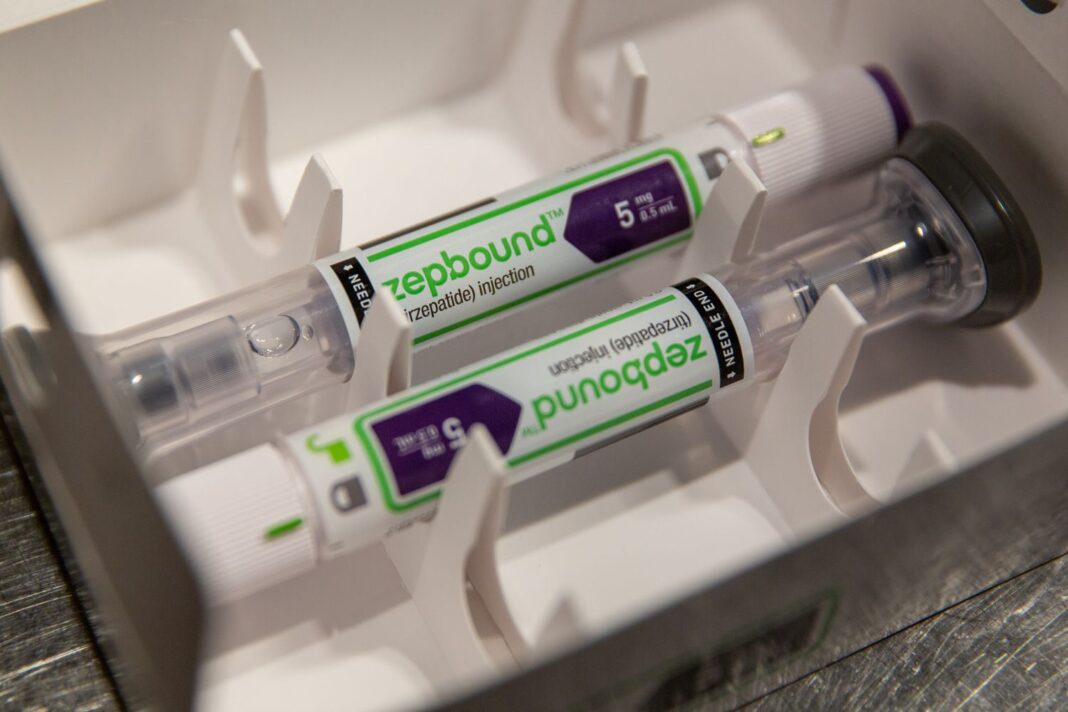Key Takeways
- GLP-1 agonists are in short supply.
- If you miss a dose, talk to your doctor about your alternatives. Other drugs may help fill the gaps.
- Doctors do not recommend starting and stopping your medicine without guidance.
- Doctors also don’t recommend using compounded versions of GLP-1s.
For those who are successfully losing weight on an effective prescription of an anti-obesity medication, their biggest concern is an interruption of their medication. But with shortages ongoing, finding access to drugs like Wegovy and Mounjaro is proving to be difficult.
These medications, as well as their respective diabetes predecessors, Ozempic and Monjaro, are currently on the FDA shortage list. But if your pharmacy can’t source your prescription for you, what do you do? And what happens to your body if you miss a few doses?
What Happens When You Miss a Dose?
Wegovy and Ozempic are part of a class of drugs called glucagon-like peptide (GLP-1) receptor agonists. They work by mimicking the GLP-1 hormone to curb appetite. Mounjaro and Zepbound do the same, but simultaneously activate another hormone called glucose-dependent insulinotropic polypeptide (GIP).
Normally, when someone eats, their gut detects food intake and uses glucagon to tell the brain that the stomach is full. GLP-1 agonists help people feel full after eating less food, leading to increased weight loss and control of blood sugars.
Most GLP-1 agonists are typically weekly injections. If you miss one dose, not much will happen, but repeatedly missing your doses may have a big effect, Tonia Vinton, MDan assistant professor in the Department of Internal Medicine at UT Southwestern Medical Center, told Verywell.
“Missing one dose of semaglutide (Wegovy) or tirzepatide (Zepbound) may not be noticeable, as the half-life is between 5–7 days,” Vinton said, referring to the amount of time it takes for the medication to decrease to half its concentration. “You will have some active medication present even several weeks after your last injection.”
Vinton said that hunger and cravings may return after one to two weeks of missing dosages of GLP-1s. After four weeks, the results will be very noticeable and may lead to weight gain. If you’re using a GLP-1 as a way to manage diabetes, you may notice higher blood sugar.
What Should You Do If You Miss a Dose?
Archana Sadhu, MDan endocrinologist at Houston Methodist Hospital, says that the next steps depend on how many doses you’ve missed. If you missed one dose, it’s fine to resume your regular schedule at the next appointed time.
“If you miss many doses for several weeks to months, you should restart with lower doses and titrate back up per the drug dosing instructions, similar to the initial starting process,” Sadhu told Verywell. “This will minimize the side effects of the drug.”
Missing doses are more adverse for those who are using GLP-1 agonists for diabetes management. Sadhu says that since blood sugars can go up quickly, it’s important to contact your provider to adjust other diabetes medications during the shortage and institute a low-carb diet to keep blood sugars under control.
Both Vinton and Sadhu advise working with your physician during any shortage to look for alternatives that may work to maintain weight loss in the event of a shortage.
“First-generation anti-obesity medications (such as Qsymia and Contrave) can provide 5-10% weight loss and may assist with weight maintenance until supply issues with GLPs have resolved,” Vinton said.
Sadhu said that stretching the medicine out may be an option, but it will be less effective and may result in a return of cravings, although they may be milder. She recommends trying to find a supply of a lower dose of your current medication and taking two doses to keep the dosage amount consistent. For people with diabetes, she recommends finding other medications to supplement the effects of a lowered or missing dose.
Can Compounded Medication Fill the Void?
Vinton and Sadhu agree that compounded versions of any anti-obesity medication are not recommended. Compounded versions of these medications are widespread; Hims & Hers recently announced a compounded semaglutide initiative. But compounded medications, regardless of their brand, are not FDA-approved and may be missing some active ingredients or include unknown ingredients that could be allergens. Since they are not standardized or tested by the FDA, there are many unknowns.
What This Means For You
Adherence to any pharmaceutical protocol is important. It ensures that the drug is administered safely and effectively, and it will result in the best clinical outcomes. But if you can’t find your medicine, your first stop should be your doctor’s office. Your provider will be able to map out a plan to lessen the side effects of the missing doses and come up with alternatives.





